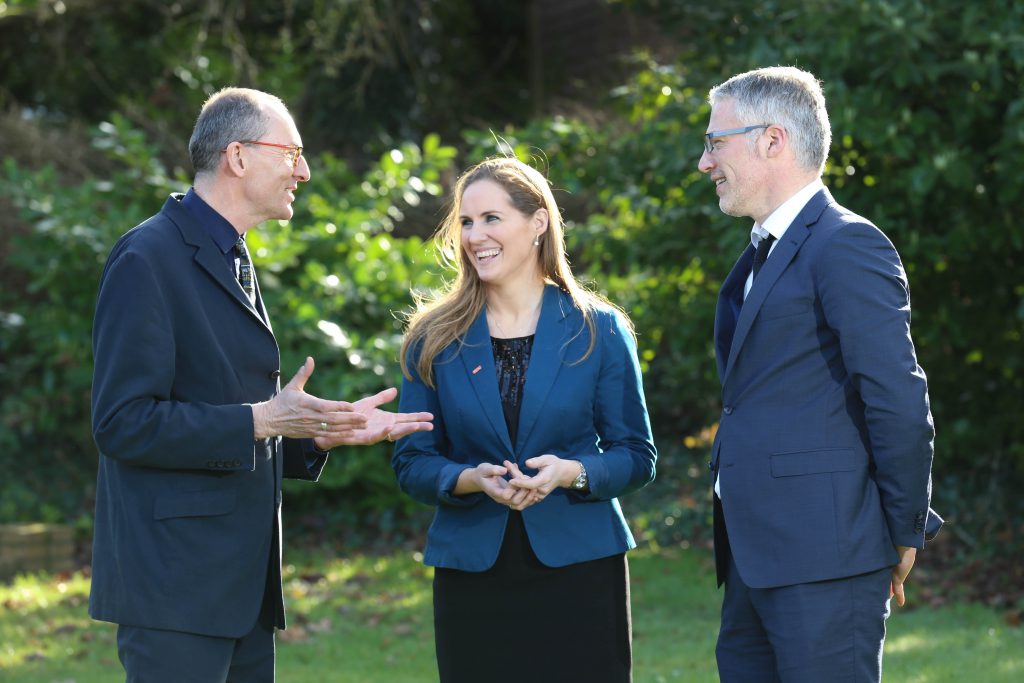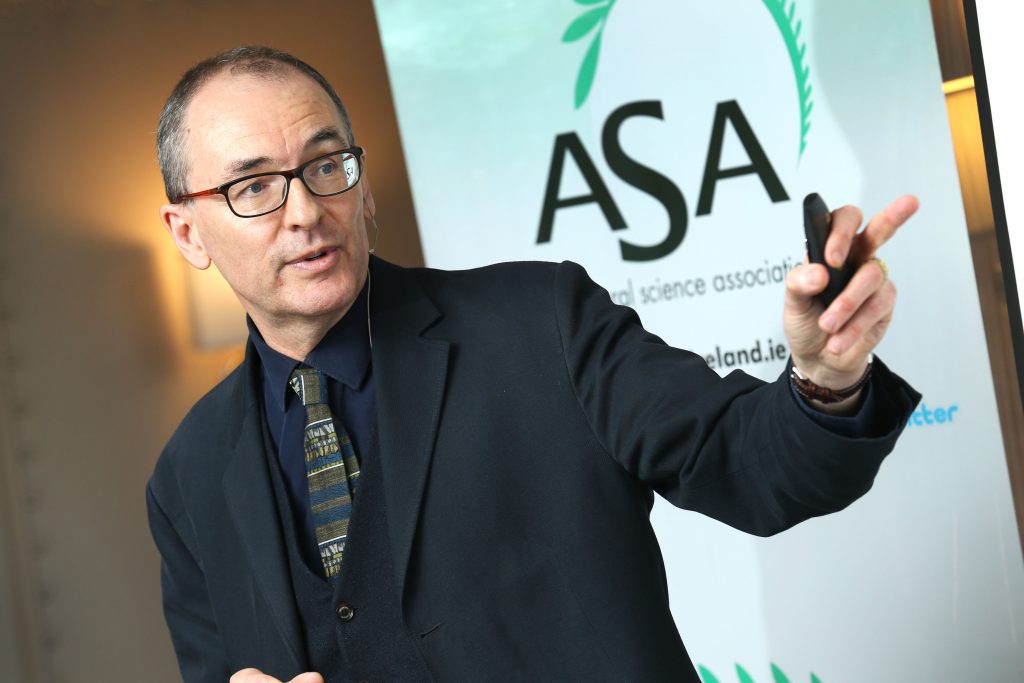The Addressing Climate Change in Irish Agriculture conference today heard that a substantial and coordinated effort is required from across the Irish agri-food industry in order to meet the Food Wise 2025 and EU Climate Targets for 2030.
At the conference, organised by the Agricultural Science Association (ASA), a panel of Irish and international climate change and agricultural experts discussed and debated the way forward for the industry in addressing the critical challenge presented by climate change.
The keynote address was delivered by Dr. Matthew Crowe, Director of the Office of Evidence and Assessment at the Environmental Protection Agency (EPA) who said that building trust between environmental and agricultural stakeholders is a major challenge.
“Climate change is one of the greatest challenges facing humanity today.
We all have our part to play in working out how to live lower carbon lives and within the limits of our planet.
“All citizens now need to be positively engaged in the move to greater climate and resource efficiency, changing the way we work, the way we travel, heat our homes, produce our food and use our purchasing power.
“Food production is an important part of this transition and the challenge for Ireland is to balance the objective of carbon neutrality in agriculture with the economic and social objective of promoting the sustainable development of rural Ireland which is heavily dependent on agriculture,” he said.
Speaking about President Juncker’s commitment to European agriculture, Dan Burgar Kuzelicki, Policy Officer, European Commission reminded delegates that a 12-week long public consultation on the modernisation and simplification of the Common Agricultural Policy started on February 2 and all stakeholders are invited to contribute.
John Muldowney, Agricultural Inspector with the Department of Agriculture outlined the challenge facing the Irish agri-sector in meeting the commitments outlined in Food Wise 2025.
“As a sector, agriculture is the highest emitter of greenhouse gases in Ireland, equating to approximately 33% of national emissions.
“With the introduction of the Climate Action and Low Carbon Development Bill and the ambitions set out in Foodwise 2025, Ireland is at a good starting point in addressing the climate issue.
“However, we need to continue to demonstrate our credentials and show focus on improvement.
“Acting now can help create a real point of difference and as an industry we must all play our part,” John Muldowney,” he said.
Professor Rogier Schulte from Wageningen University and Research Centre presented recent research on land use in Ireland, which showed how the correct management of soil carbon has significant potential to partially offset agricultural greenhouse emissions.
The recommended measures include new afforestation, restoring degraded peatlands, preventing carbon leaks and deep storage of stable carbon.
“To date, management of the land use, land use change and forestry sector has been largely limited to the regulation, monitoring, and reporting of land use change.
“By themselves, these measures are unlikely to fully deliver on the significant potential of the sector for offsetting greenhouse gas emissions, which has been recognised in the recent reframing of EU and United Nations Framework Convention on Climate Change policy contexts.
“Our recent research, focussing on Ireland, provides a framework for climate-smart land management which has the potential to broaden and diversify the menu of options for the mitigation of climate change,” Professor Schulte said.

Dr. Matthew Crowe, ASA President, Mary Delaney and Professor Rogier Schulte Picture: Finbarr O’Rourke
A number of other potential measures and solutions for addressing the challenge of climate change were also presented.
These were presented by Tommy Boland, Associate Professor of Ruminant Nutrition, UCD, Leanne Roche from the Greenhouse Gas Research Programme in Teagasc and Thomas Ryan, Environment and Infrastructure Executive, IFA.
The conference was hosted by ASA President, Mary Delaney.
The Department of Agriculture, Food and the Marine sponsored the conference in recognition of the role that the ASA plays in bringing together key stakeholders from the sector to discuss the important issue of climate change.

